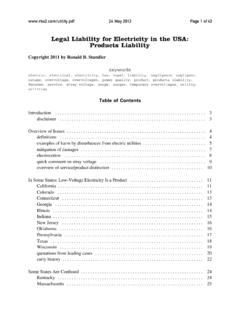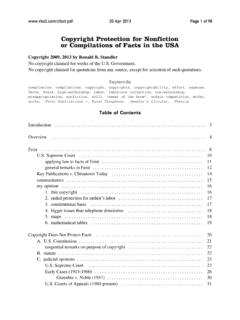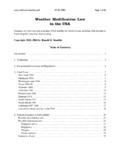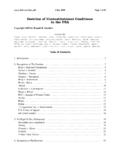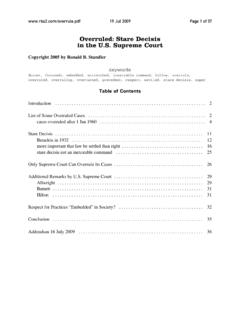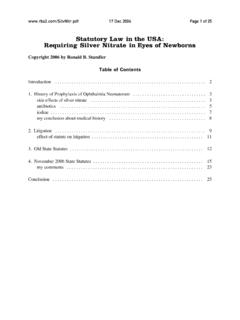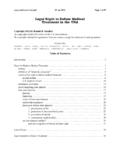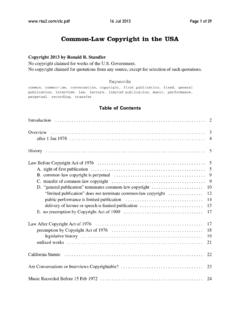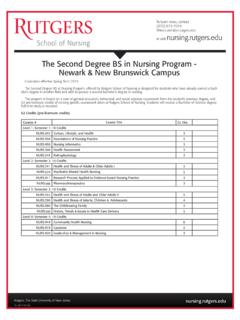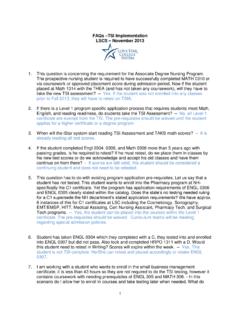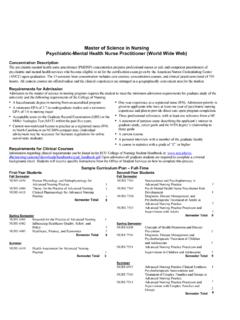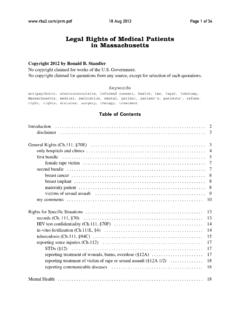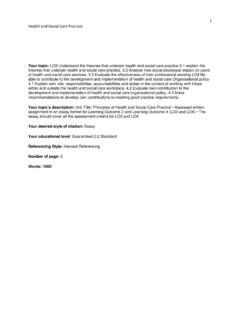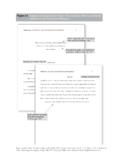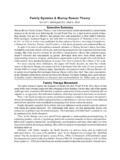Transcription of Possibility of “State Action” by Private Colleges in …
1 Apr 2011 Page 1 of 59 Possibility of State action byPrivate Colleges in the USAC opyright 2011 by Ronald B. StandlerNo copyright claimed for works of the copyright claimed for quotations from any source, except for selection of such , accreditation, college , corporation, due process, law, Massachusetts, NewYork, nonprofit, Pennsylvania, Private , school, state action , state actor, universityTable of ContentsIntroduction .. 3 Overview .. 41. public function .. 42. corporation uses government land .. 43. acts under color of state law .. 44. state regulation/control .. 55. state funding not relevant .. 56. transferring public asset to evade civil liberties .. 67. conduct fairly attributable to state .. 6summary .. Supreme Court .. 8 Barnette (1943) .. 8 Marsh v.
2 Alabama (1946) .. 9 Rendell-Baker v. Kohn (1982) .. 10 Tarkanian (1988) .. 13 Brentwood (2001) .. 16 Massachusetts: No State action Found .. 18 Harvard University .. 18 Krohn (1977) .. 18 Rice (1981) .. 20 Cohen (1983) .. 20 Lamb v. Rantoul (1977) .. 21other Private Colleges in Massachusetts .. 23 Logiodice (2002) .. Apr 2011 Page 2 of 59 New York: No State action Found .. 28early cases in trial courts .. 28 Second Circuit .. 28 Powe v. Miles (1968) .. 28 Coleman v. Wagner college (1970) .. 32 Grafton v. Brooklyn Law School (1973) .. 33 Wahba v. New York University (1974) .. 35 Weise v. Syracuse Univ. (1975) .. 37 Albert v. Carovano (1988) .. 37 Pennsylvania .. 41 Pennsylvania state-related Colleges are state actors .. 41 PSU is state actor.
3 42 Isaacs (1974) .. 42 Braden (1977) .. 43 Trotman (1980) .. 44 Krynicky & Schier (1984) .. 45 state-aided Colleges in Pennsylvania are not state actors .. 46 Pennsylvania State System of Higher-Education is state actor .. 46 State action Erroneously Found .. 47 Doe v. Hacker (1970) .. 47 Ryan v. Hofstra University (1971) .. 49 Buckton v. NCAA (1973) .. 52 Rackin v. University of Pennsylvania (1974) .. 54 Accreditation Organizations are not state actors .. 55my criticism of traditional function test .. 57 Conclusion .. Apr 2011 Page 3 of 59 IntroductionCivil liberties expressed in the first ten Amendments to the Constitution, including dueprocess of law in the Fifth Amendment, apply only to acts by the federal government. TheFourteenth Amendment extends these civil liberties to acts by state or local governments.
4 As ageneral statement of law, Private corporations in the USA have no legal obligation to provide civilliberties, including due companion essay at discusses due process rights ofcollege students who are accused of some disciplinary offense. As explained in that essay, statecolleges have a constitutional requirement of due process, but the minimally acceptable process ismuch less than in criminal law. As a general rule explained in the previous paragraph, students ata Private college have no due process rights, and the rules of a Private college often forbid a studentfrom bringing an attorney to a disciplinary hearing on for students or professors at a Private college ( , a college operated by a nonprofitcorporation, not a government) sometimes argue that the college is a state actor , as that phrase isused in Fourteenth Amendment law.
5 In some cases, the due process requirement of state actorswould be important. In other cases, it would be easier to remedy gender or racial discrimination ifa Private college were a state actor. This essay discusses the technical criteria for state action in thecontext of Private Colleges in the word state in this essay refers to any government in the USA, regardless of whetherfederal, state, county, or municipal. disclaimerThis essay presents general information about an interesting topic in law, but is not legaladvice for your specific problem. See my disclaimer at . From reading e-mail sent to me by readers of my essays since 1998, I am aware that readers oftenuse my essays as a source of free legal advice on their personal problem. Such use is notappropriate, for reasons given at . This essay does not list acomplete, nationwide collection of cases involving state action by Private Colleges .
6 I list the cases in chronological order in this essay, so the reader can easily follow the historicaldevelopment of a national phenomenon. If I were writing a legal brief, then I would use theconventional citation order given in the Bluebook. Because part of the audience for this essay isnonlawyers, I have included longer quotations from court cases than typical writing for Apr 2011 Page 4 of 59 To make the scope of this essay manageable in my limited unpaid time, I have concentratedon cases in Massachusetts, New York State, and Pennsylvania ( , Courts of Appeals forFirst, Second, and Third Circuits), with the exception of my searches for cases involvingaccrediting associations. OverviewThere are at least seven arguments that can be made for declaring a Private corporation a stateactor. In the following paragraphs, I cite relevant Supreme Court cases, and sometimes Court of Appeals cases.
7 1. public functionState action is found when a Private corporation provides a public function , as in Marsh , 326 501, 506 (1946) (company town). See also Terry v. Adams, 345 461(1953); Evans v. Newton, 382 296, 299 (1966) ( That is to say, when Private individuals orgroups are endowed by the State with powers or functions governmental in nature, they becomeagencies or instrumentalities of the State and subject to its constitutional limitations. ). 2. corporation uses government landState action is found when a Private corporation uses land or buildings that are owned by agovernment. See, , Burton v. Wilmington Parking Authority, 365 715 (1961); Fortin Little League, 514 344 (1stCir. 1975); Holodnak v. Avco Corp., Avco-LycomingDivision, Stratford, 514 285, 289 (2dCir. 1975), cert. denied, 423 892 (1975). 3.
8 Acts under color of state lawState action is found when there are acts under color of state law, by using power possessedby virtue of state law and made possible only because the wrongdoer is clothed with the authorityof state law. United states v. Classic, 313 299, 326 (1941). In West v. Atkins, 487 42 (1988), the Supreme Court applied this doctrine to aprivate physician who had allegedly mistreated a prisoner in a state prison. A prisoner was foundguilty and sentenced to prison by a court ( , state action ) and the prison had custody of theprisoner. The prisoner was obviously not free to leave the prison and consult any physician. Instead, the prisoner was required by the state to accept the physician who was chosen by theprison. In West, the state of North Carolina contracted with a physician in Private practice toprovide part-time medical services to prisoners, making the physician an independent contractor.
9 The Supreme Court held that the physician was a state actor. I note a significant fact Apr 2011 Page 5 of 59distinguishes West from education cases: students at a Private college voluntarily chose to attendthat college , while the state chose the physician in action is found when a Private actor is a willful participant in joint activity with theState of its agents. Brentwood Academy v. Tennessee Secondary School Athletic Association,531 288, 296 (2001). See earlier cases, , Lugar v. Edmondson Oil, 457 922, 941(1982) (quoting Adickes v. Kress & Co., 398 144, 152 (1970), which quotes , 383 787, 794 (1966)). 4. state regulation/controlPlaintiffs lawyers often argue that there is state action when the Private corporation is heavilyregulated by the state, thereby giving the state some control of the corporation s acts.
10 But seeJackson v. Metropolitan Edison Co., 419 345, 350-351 (1974) ( Heavily regulated electricutility that is a monopoly is not a state actor); Moose Lodge No. 107 v. Irvis, 407 163 (1972)(no state action in Private club that held a state liquor license, despite the state regulation thataccompanied the liquor license). This argument would be stronger if the state appointed some members of the board ofdirectors of a Private corporation. See, , the Pennsylvania state-related Colleges , where 1/3 ofthe trustees represent the state government, discussed in this essay beginning at page 41. 5. state funding not relevant Plaintiff s lawyers often argue there is state action when a Private corporation receivessubstantial income from contracts or grants from a government. However, receiving money froma government does not convert a Private corporation into a state actor.
